Languages
ViaSay Chatbot Language Support
ViaSay Chatbot supports over 10 languages, enabling seamless translation of your chatbot content. Languages are categorized as follows:
- Native languages: High-quality NLP is available for English, French, Spanish, Dutch, and German.
- Auto-translated languages: With the help of Google Translate, more than 100 languages are translated to the primary native language in which the bot was developed.
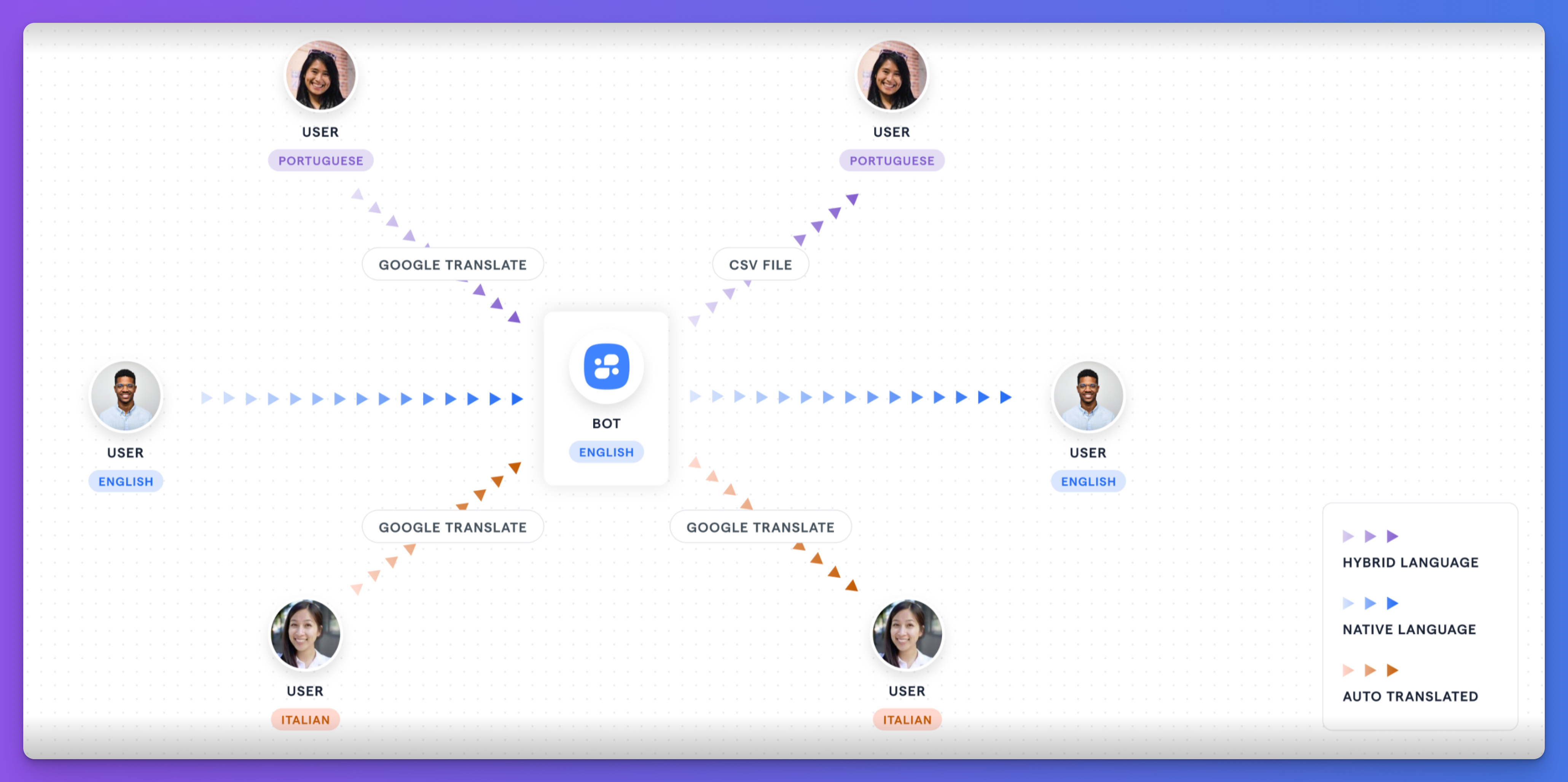
The three language management options
Managing Multiple Languages
You can manage the different languages of your chatbot from the designated interface.
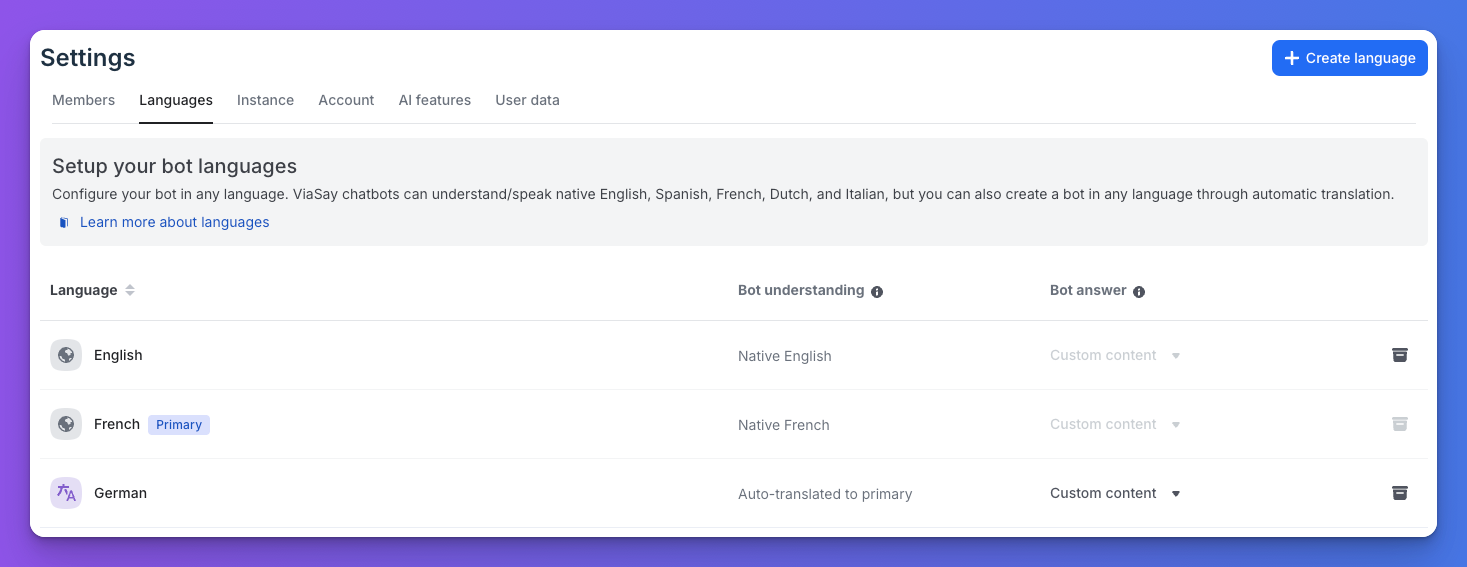
Manage multiple languages
- The Primary Language serves as the foundational native language for the chatbot.
- Auto-translations (both user inputs and bot responses) are based on this primary language and cannot be changed after the bot is created.
*Pro Tips:**
- Select a primary language that is most frequently used by your target audience.
- Ensure the primary language is one your team is proficient in for ease of use case creation.
- The primary language must be among ViaSay Chatbot's native languages (English, French, Spanish, Dutch, or German).
Bot Understanding and Responses
Understanding User Messages
- Native: High-quality NLP in native languages (English, French, Spanish, Dutch, and German).
- Auto-Translated: User messages are translated to the primary language using Google Translate before being processed by ViaSay's NLP.
Generating Bot Responses
- Custom Content: Editable content tailored to the target language (default for native languages).
- Auto-Translated: Bot responses written in the primary language are translated by Google Translate before delivery to the user.
| Translation Type | Understanding (NLP) | Content (Bot Responses) |
|---|---|---|
| Native | Native NLP | Custom |
| Hybrid Translation | Auto-Translated | Custom |
| Full Auto-Translation | Auto-Translated | Auto-Translated |
Example Conversation Flow
| Step | Illustration |
|---|---|
| User speaks 🇷🇺 Russian | 🇷🇺 Я хочу поехать в Москву |
| Message auto-translated to 🇬🇧 English | 🇬🇧 I want to go to Moscow |
| Intent triggered via English NLP | Intent: "Flight Information" |
| Bot generates response in 🇬🇧 English | "Do you want to go to Moscow? Where are you leaving from?" |
| Option 1: Auto-Translated Response in 🇷🇺 Russian | 🇷🇺 Вы хотите поехать в Москву? Откуда ты уезжаешь? |
| Option 2: Custom Response in 🇷🇺 Russian | 🇷🇺 Москва красивый город! |
Google Translate API
Terms and conditions regarding data usage can be found here
Adding a New Language
- Click Create Language in the top-right corner.
- Select the new language from the dropdown menu.
Pro Tip:
- For a quick setup, choose full auto-translation.
- For better content control, opt for hybrid translation.
- Adjust the bot answer settings on the language index page from Auto-Translated to Custom Content.
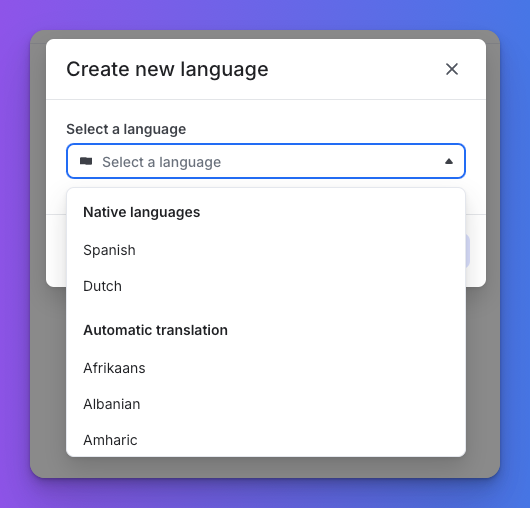
Adding a new language to your bot
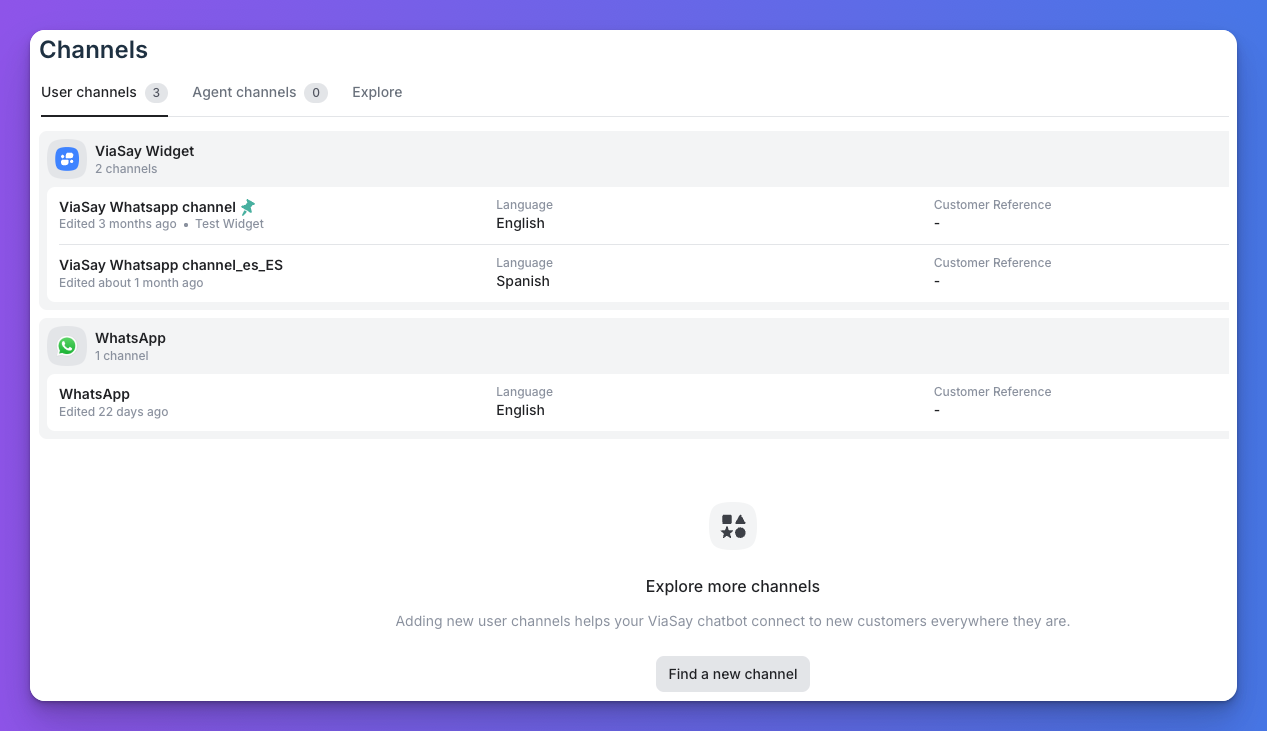
Each new language automatically creates a corresponding widget under the User Channels section.
Archiving a Language
Archiving a language permanently deletes all associated user channels and analytics filters.
- If reactivated, answers, training phrases, and entities will be restored.
- Analytics and conversation filters for the archived language will also be reinstated.
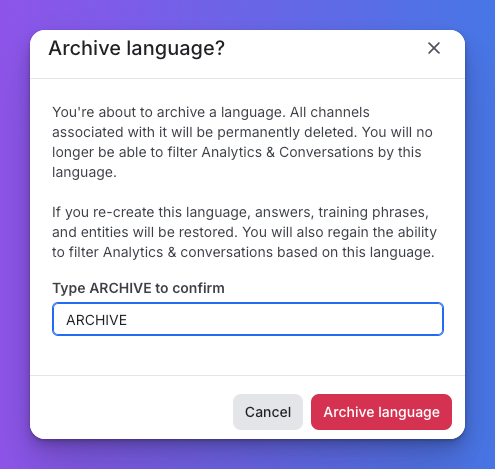
Archiving a Language
Bulk Management
Manage translations in bulk using a CSV file for native and hybrid translations:
- Download current translations for all bot content.
- Upload modified translations after editing.
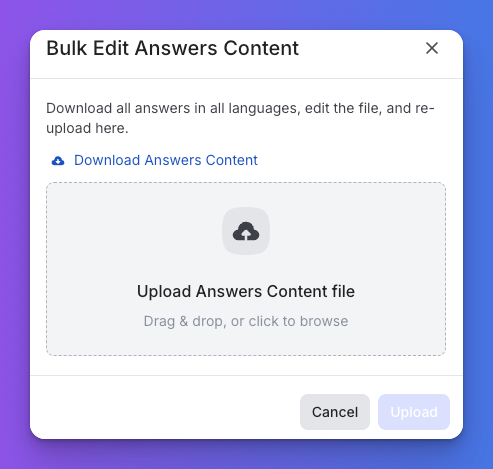
Bulk Management
CSV Structure
- Columns for each language (e.g.,
en_US,fr_FR,de_DE) – editable. - Metadata columns (e.g.,
record_id,field) – non-editable.
Translation content includes:
| Type | Field | Description |
|---|---|---|
| Answer | text | Text content of answers. |
| Button | title, payload | Button titles and URLs. |
| Template | static_image_url | Images, titles, subtitles. |
| Instance | fallback_text | Fallback messages. |
| Scheduler | reply | Scheduler messages. |
Shared Elements Between Languages
- Chatbot Structure: Shared across all languages with customizable training sentences and answers.
- Filters: Ensure regex filters match all deployed languages.
- APIs and Knowledge Bases: Handle language-specific details in integrations.
Language Detection
ViaSay Chatbot does not auto-detect or switch languages. Implement a "language use case" for optimal management.
Updated 11 months ago
